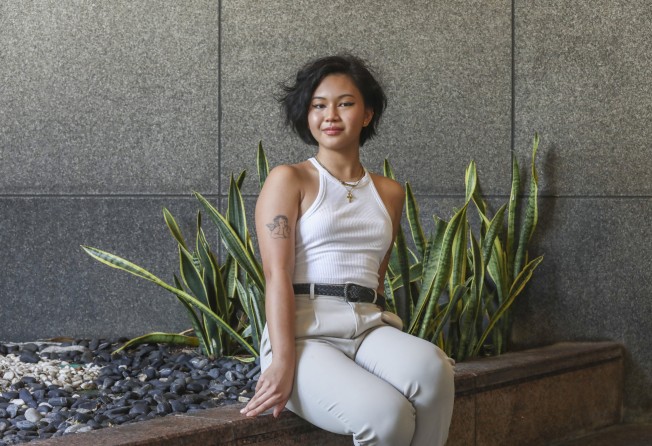
Young Filipinos in Hong Kong on racism and discrimination they have faced and a video project that aims to raise awareness
- Despite more Filipinos being raised in the city, with many able to speak Cantonese and read and write Chinese, rampant discrimination still prevails, some say
- Support group Section Juan interviewed young Filipino Hongkongers on their feelings of identity for a recent video project to create more visibility for them
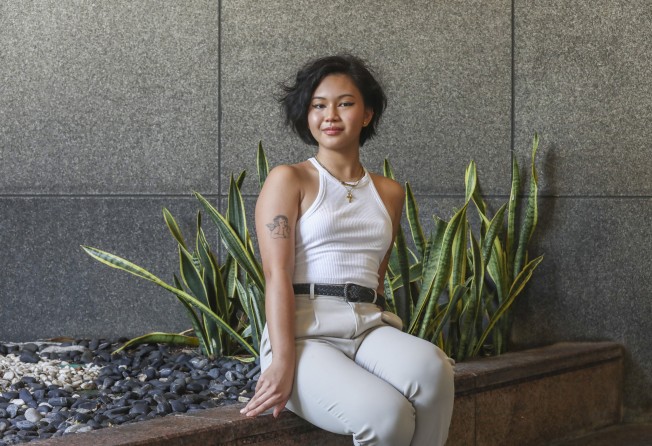
Ysabelle Limsiaco remembers standing outside a piercing studio in Hong Kong’s Mong Kok area in early April waiting for her sisters to finish their appointment when a local Chinese teenager dashed inside, urging the piercer to hurry up.
“She looked like she was in a rush,” Limsiaco says. “So she started getting irritated.”
The teenager came outside and Limsiaco heard her swear under her breath and send voice recordings to someone in Cantonese saying: “These Filipinos love to take their sweet time. They’re in my way.”
Born and raised in Hong Kong, 20-year-old Limsiaco is a proud Filipino Hongkonger who went to local schools and can speak fluent Cantonese. So when the teenager, for some unknown reason, started videoing her standing there, Limsiaco decided to confront her. But in response, the teenager says she would never record “trash”.
“She then said some derogatory term commonly used to target Filipino domestic workers and went on about us being unworthy to even speak to her,” Limsiaco says.
“I was so mad that the shop owner had to lead me out of there so that I could calm down. She was so understanding.”

Limsiaco and two of her other siblings were among some of the young people who appeared in a recent video project called Project: “I am…”, part of an effort to create more visibility and awareness for young Filipino Hongkongers.
The project was organised by Section Juan, a support group that educates and empowers Filipino Hongkonger youth. Section Juan’s president Ray Yumul, 30, directed the project and asked participants to give their views on their perceptions of identity, touching on language, appearance, culture and sense of belonging. He worked with producer Xyza Cada, editor Kristie Ko and project co-ordinator Miles Sible.
As a fellow Filipino Hongkonger who went through similar experiences, he says the initiative was an “important calling”, given that this advocacy is “very close to heart”, and that it was “long overdue”.
Yumul, who works in the human resources field, belongs to an emerging group of Filipino Hongkongers that is striving to shed light on the younger Filipino Hongkonger generation through research studies and collaborations with bodies such as The Philippine consulate, the Equal Opportunities Commission and The Legislative Council of Hong Kong.
Established in 2013, Section Juan is made up of Filipino Hongkonger professionals working in a wide range of fields, including psychology, performing arts, law, computer science, journalism, business, architecture and design. Yumul says that at the time of its founding, although there were many organisations tasked to help ethnic minorities in the city, there were none that specifically catered to Filipino Hongkongers.
In September 2015, the group published a study titled “Supporting Filipino youth in Hong Kong: Understanding educational issues and developing cultural awareness”, which revealed that when Filipino youngsters in the city need help, they tend to seek it from peers, rather than their respective learning support systems.
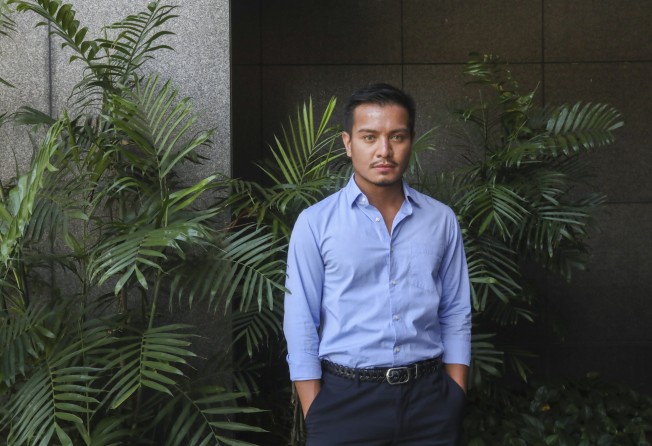
On top of Hong Kong-specific work, the group has also done numerous projects and typhoon-relief fundraisers to help people in The Philippines. For instance, the team held a fundraiser concert event called “Raise the Roof” to provide aid to some areas badly hit by Super Typhoon Haiyan, known as Super Typhoon Yolanda in the Philippines, in November 2013.
Filipinos have been immigrating to Hong Kong in significant numbers since the city’s economic rise during the early 1970s, according to a 2011 research study released by the US-based Berkley Centre for Religion, Peace and World Affairs.
Filipinos are the largest ethnic minority in Hong Kong, making up 31.5 per cent of the ethnic minority community and totalling about 184,000 people, according to a 2016 report published by the Census and Statistics Department. Although most are foreign domestic workers, an increasing number of Filipinos are being born and raised in the city, and are therefore more able to speak Cantonese and read and write Chinese.
Yet rampant discrimination against them still prevails in the city.
Like Limsiaco, Sabrina Man, another participant in Project: “I am…”, has also faced numerous instances of racism in Hong Kong. Through hearing other people’s answers in the video, she learnt that language strongly affects how Filipino Hongkongers get treated in the city, with those who have a better grasp on Cantonese treated better.
“It is always a different experience when you can speak the language,” Man says.
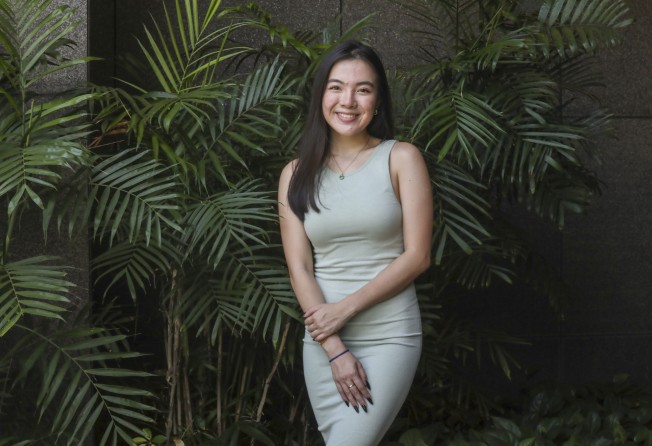
Yumul says racism is rooted in ignorance and he often finds that there is “a lot of angst” between local Hongkongers and Filipinos.
He says it is therefore important to bridge gaps – another core objective behind the video project, which comes with both Chinese and English subtitles, as participants speak in a mixture of Cantonese, Tagalog and English.
“Plus, on social media and [YouTube] video, it can reach different people [with subtitles],” Man says. “No matter where they are in the world, people can resonate to how you are feeling.”
You have to be grateful and appreciative of both of your cultures. Just think about what you can contribute to society
Kiara Isabel Sales Agoncillo, a 20-year-old Filipino Hongkonger studying at The University of Hong Kong, came across the video through a friend’s Instagram story.
“The video really did resonate [with me], especially when they were talking about growing up in Hong Kong as a Filipino in a local school system,” she says. “When I grew up, I was the only non-Chinese in my primary school. And there were only a few of us in high school.
“So I really understood when they were talking about the language barrier and kind of feeling like an outsider and not being able to assimilate with the locals until you have learned the language enough, and familiarised yourself with the culture to the point where you can kind of embody it, and then use that to get along with them.
“It is kind of like a ticket into their social circle.”
Man feels that being able to speak Cantonese “also comforts them – the fact that we are willing to study their language and we are not just here to have fun or live separately from them”.
As a Chinese-Filipino mix, Man admits that she feels a constant imbalance between the two cultures: “Whenever I am doing something, I feel like I am betraying the other.”
However, she realised that achieving a perfect 50-50 balance is counterproductive, seeing as both sides are still different despite some similarities.
“You don’t have to pick a side. As long as you’re not hurting anyone, then it’s fine,” she says when asked for advice for fellow Filipino Hongkongers who are struggling with their identity.
“You have to be grateful and appreciative of both of your cultures,” Limsiaco adds. “Just think about what you can contribute to society.”
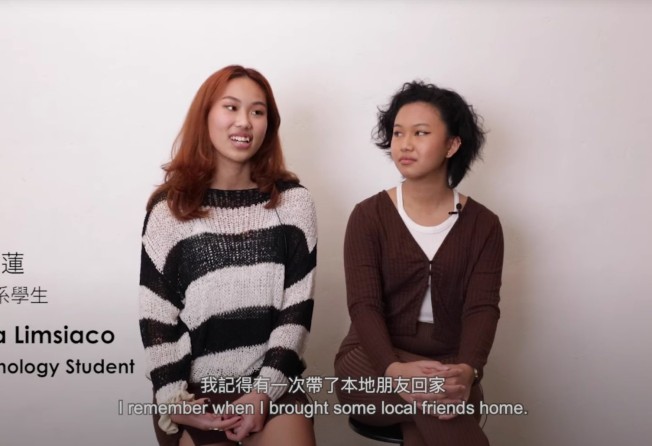
While both Limsiaco and Man do not think they have driven macro social change yet, they believe they have influenced the lives of their friends and fellow students.
“With us having this unique background, it opened their eyes to what Hong Kong really is in terms of diversity,” Man says.
“By adding my story, I hope that they would have a better understanding and be more accepting in the future.”